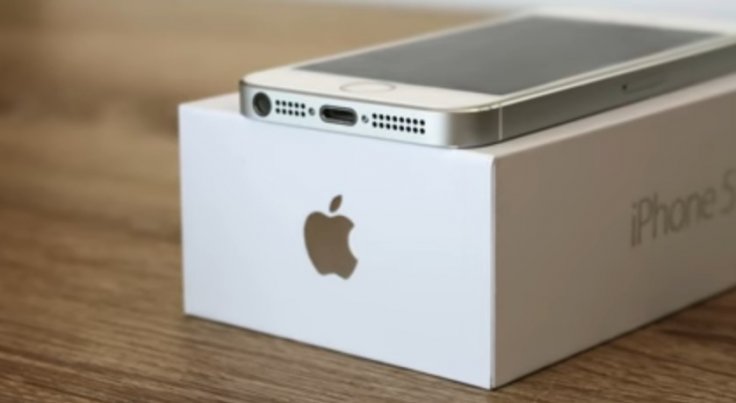Apple loves its 'lightning' port. The company has been quite reluctant to let go of its proprietary charging port even when every other manufacturer seems to be switching to USB – Type C ports and cables for their phones. However, it now seems like the iPhone-maker will have to finally give up its insistence on keeping the lightning port on its future iPhones, iPads and other devices that use the lightning port, following a new regulation by the EU.
Members of EU have urged the European Commission to force tech giants -- which of course include Apple -- to adopt a single universal charging method.
According to a BBC report, European regulators will vote on the matter on a yet to be determined date. If the regulators pass the bill and the new regulations are enforced, Apple devices sold in Europe would be required to change to a new charging port – most probably to USB-C.
Apple's reluctance

However, Apple which is perhaps the only company that is complaining about the new regulation is saying that such a move could stifle innovation and be disruptive to the consumer.
All manufacturers either use micro USB or USB Type C charging standards on their phones, except Apple which is sticking on to its proprietary lightning port for its iPhones, including the current iPhone 11 series and other products.
However, its needs to be mentioned that Apple too switched to USB Type C ports for its 2019 iPad Pro, and uses USB type C ports on all its current MacBooks.
Apple has been known to be quite generous when it comes to removing things from its phones in the past. The Cupertino based company famously removed the 3.5mm headphone with the introduction of the iPhone 7 back in 2016, but the 'lightning' port isn't something Apple wants to let go of easily.
One of the main reasons that a lot of experts believe why Apple doesn't want to give up the lightning port is doing so would mean Apple will no longer make money by selling its proprietary lightning cable and lightning charging adapters. Apple even gets a share from third-party lightning cable manufactures for using its proprietary technology, so if Apple were to switch to USB C port on the iPhones, the consumer would be able to use any USB C cable and this will certainly hurt Apple's revenues as Apple makes millions of dollars every year selling its lightning cables and charging adapters.
Why does the EU want a single charging standard?
The European Commission has been gunning for a single universal charging standard for almost a decade for environmental reasons. The EU is determined to cut down on electronic waste piling up due to obsolete cables, which it estimates generates about 51,000 tonnes of waste every year.
A common charger that fits all mobile phones, tablets, e-book readers and other portable devices will help reduce this to some extent, according to EU members. As a matter of fact, there were some 30 different types of charging ports and chargers before 2009, but that has been reduced to three now – micro USB, USB Type C and Lightning.
Apple's port history
If Apple chooses to switch to USB Type C ports for its upcoming iPhones, it will be the company's third port change in 13 years. Apple's first port was again a proprietary 30-pin connector that is used on all iPhones prior to the launch of the iPhone 5 in 2013, which was the first phone to ship with Apple's new lightning port.
Apple had also signed a memorandum of understanding back in 2009, along with 10 other leading tech giants at the time, including Samsung and Nokia, pledging to provide micro USB compatible chargers to consumers. But it took advantage of a loophole that allowed manufacturers to continue using their proprietary chargers if they supplied an adapter, and kept the 30-pin connector and lightning port on its devices.
Will Apple move to USB-C or will it go wireless?
We came across some reports recently that suggest Apple is considering removing the charging port, and completely switch to wireless charging on its 2021 iPhones.
Apple and other major smartphone manufacturers like Samsung and Huawei are already equipping their smartphones with wireless charging support, alongside wired charging, so it won't be all that surprising to see Apple go all-wireless in the future. However, as things stand, it seems Apple will either have to choose between switching to USB Type C or going completely wireless as suggested in the rumours for the 2021 iPhones.









